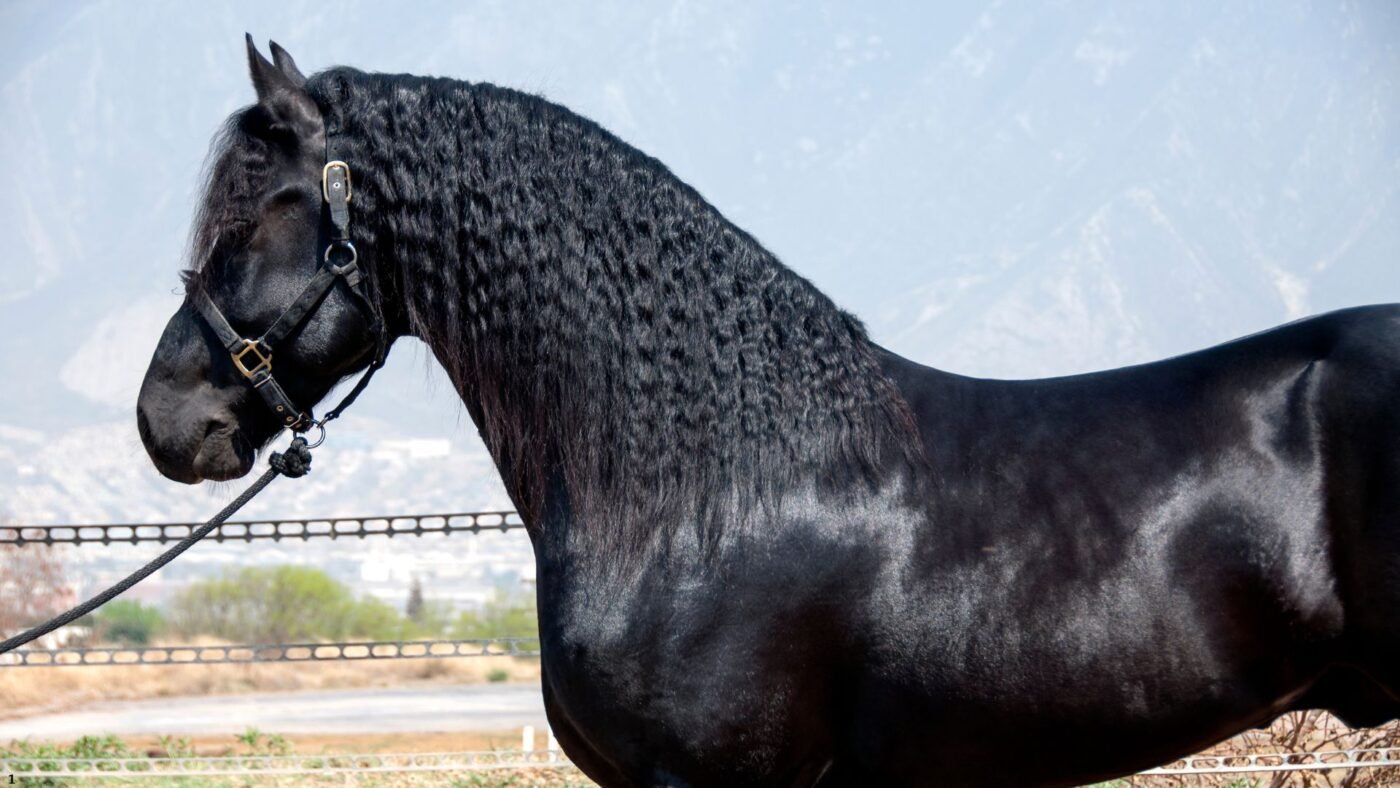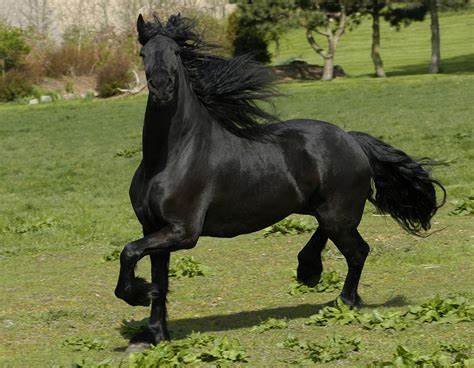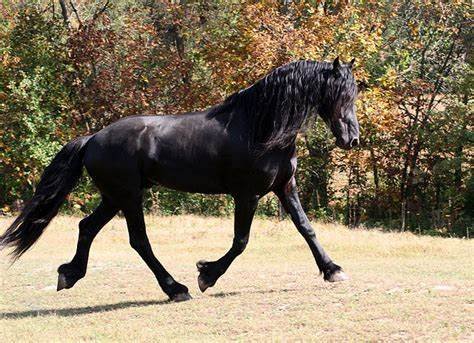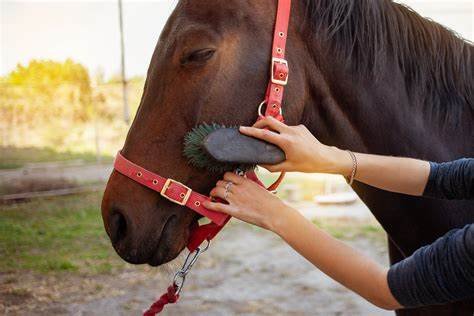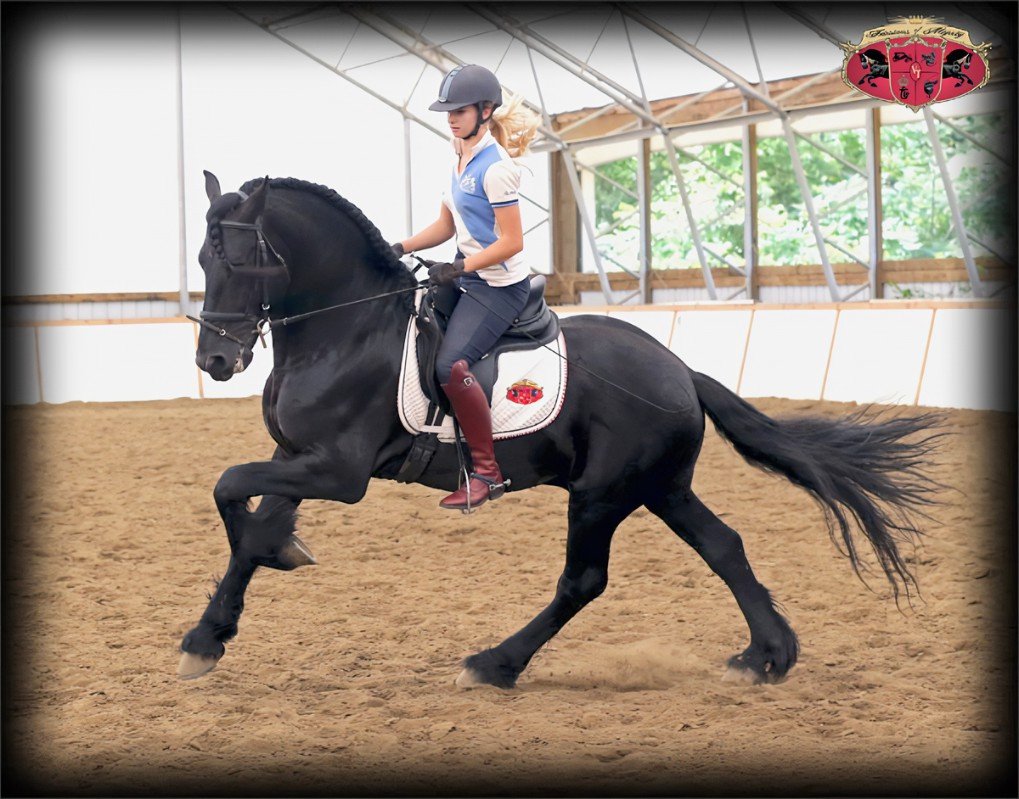Friesian horses are beloved for their striking appearance and graceful movement. However, like all horse breeds, they are prone to certain health concerns that owners should be aware of. Understanding these potential issues can help you provide better care for your Friesian and ensure they live a long, healthy life. In this article, we’ll discuss the most common health concerns in Friesian horses and offer tips on how to manage and prevent them.
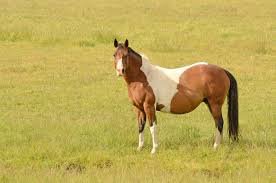
1. Joint and Hoof Problems
Friesians are a larger breed with a strong build, which can put extra strain on their joints and hooves. Joint issues, such as arthritis, are more common in Friesians as they age, especially if they’ve been involved in intense physical activities like dressage or pulling heavy loads. The weight they carry can lead to joint stress, particularly in the hocks and knees.
Regular hoof care is essential to avoid hoof-related issues like laminitis, founder, and hoof cracks. Ensure your Friesian receives regular hoof trims and always monitor for signs of lameness. Joint supplements containing glucosamine and chondroitin can help support joint health, and providing adequate rest between heavy work or training can minimize the risk of overuse injuries.
2. Equine Metabolic Syndrome (EMS)
Equine Metabolic Syndrome (EMS) is a common condition in many horse breeds, including Friesians. This syndrome is characterized by obesity, insulin resistance, and an increased risk of developing laminitis, a painful and potentially debilitating hoof disease. Friesians, due to their tendency to gain weight easily, can be more susceptible to EMS.
To prevent EMS, monitor your Friesian’s weight closely and ensure they get plenty of exercise. A balanced diet with low sugar and starch content, combined with access to quality forage, is essential. Avoid overfeeding grain-based diets and consult your veterinarian if you notice any signs of obesity or weight gain.
3. Cushing’s Disease (PPID)
Cushing’s disease, or Pituitary Pars Intermedia Dysfunction (PPID), is another condition that can affect Friesians, especially as they age. PPID is caused by a malfunction in the pituitary gland, leading to an overproduction of certain hormones. This condition can result in symptoms such as a long, shaggy coat that does not shed properly, increased thirst and urination, muscle wasting, and a pot-bellied appearance.
Cushing’s disease is typically diagnosed through blood tests and can be managed with medication like pergolide, which helps regulate the production of hormones. If you notice any of the symptoms mentioned, consult your veterinarian for early diagnosis and treatment.
4. Congenital Defects: Affected Foals
Friesian horses are also prone to certain congenital defects that may affect foals. One such issue is Friesian foal myopathy, a rare condition that causes muscle weakness in newborn foals. This condition can impair movement and cause difficulties for foals to stand and nurse. Foals with this condition may require special care, and in some cases, the condition can be fatal.
To minimize the risk of congenital defects, always select a reputable breeder who tests breeding horses for known genetic conditions. Regular veterinary checkups during pregnancy and after foaling are important to detect and address any concerns early.
5. Heart Disease
Friesians are also more prone to certain types of heart disease, particularly an arrhythmia known as atrial fibrillation. This condition causes an irregular heart rhythm that can lead to fatigue, poor performance, and other complications. While atrial fibrillation can be managed in many cases with medication, it’s important for Friesian owners to be aware of any changes in their horse’s behavior, such as sudden fatigue or labored breathing.
Regular veterinary exams, including cardiac assessments, can help detect heart conditions early. If you notice any signs of heart distress, such as irregular breathing or a noticeable drop in stamina, consult your veterinarian immediately.
6. Eye Issues: Uveitis and Cataracts
Eye problems, such as uveitis (inflammation of the eye) and cataracts (clouding of the lens), can occur in Friesians. Uveitis can cause pain, sensitivity to light, and sometimes blindness if left untreated. Cataracts can affect vision and may require surgical intervention in severe cases.
To prevent eye issues, protect your Friesian from trauma by using appropriate equipment during work and riding. Regularly check for signs of discomfort, such as squinting, tearing, or redness. If you notice any of these symptoms, take your horse to a veterinarian for an eye exam.
7. Muscle Issues: Tying Up (Rhabdomyolysis)
Tying up, also known as rhabdomyolysis, is a condition where the muscles stiffen and cramp, often leading to pain and difficulty moving. This condition is more common in horses with a history of intense exercise, poor conditioning, or inadequate nutrition. Friesians can be more susceptible to tying up due to their size and muscular build.
To prevent tying up, make sure your Friesian receives proper warm-up and cool-down routines before and after exercise. Ensure they are on a well-balanced diet, with the right amount of calories, vitamins, and minerals. Regular exercise and a consistent routine will also help prevent muscle stiffness and fatigue.
Conclusion: Preventing and Managing Health Concerns in Friesians
Friesian horses are incredibly beautiful and capable, but they require careful attention to their health. By staying vigilant about common health issues such as joint problems, EMS, Cushing’s disease, and heart conditions, you can provide better care for your horse and help them thrive. Regular veterinary check-ups, proper nutrition, and consistent exercise are key to preventing many of these health concerns. With the right care, your Friesian can enjoy a long and healthy life.







